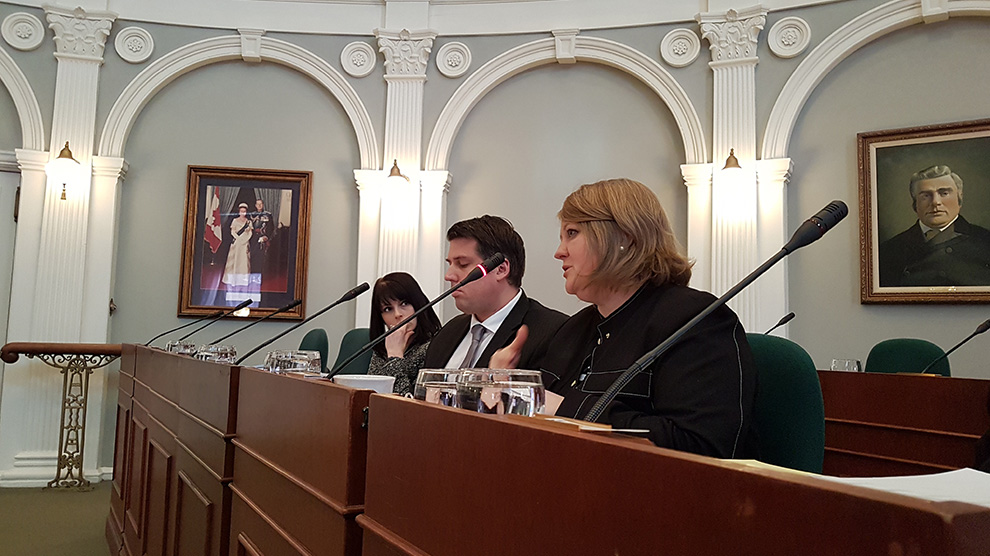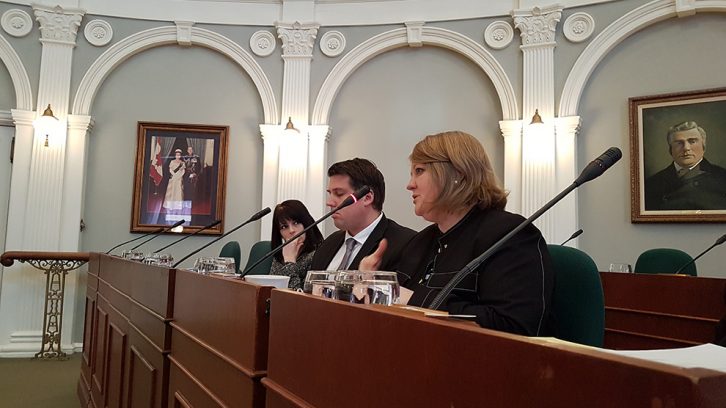Income Assistance
More reforms could come to income assistance, but no earlier than 2019
Community Services to increase rates of income assistance by at least two per cent

caption
Deputy Minister of Community Services, Lynn Hartwell (right), speaks at the Standing Committee of Public Accounts on Wednesday.
caption
Deputy Minister of Community Services, Lynn Hartwell (right), speaks at the Standing Committee of Public Accounts on Wednesday.The deputy minister of community services discussed future reforms to the employment support and income assistance program in Nova Scotia at the Standing Committee of Public Accounts on Wednesday.
Lynn Hartwell, the deputy minister, said a number of the reforms are designed to make the program easier for those who are trying to enter the workforce.
“It’s a scary thing to leave (income assistance); it’s a scary thing to not know what will happen if you fail,” she said.
Hartwell said the department had a lot of work to do. She discussed reforms that have been put in place and ones that are still to come.
The new reforms, which will be put in place between 2019 and 2020, include the implementation of a standard household rate. With the standard household rate, the rates for all ESIA recipients will increase to the maximum amount they are eligible for.
Rates for recipients who are able to work will increase by two per cent, while rates for recipients who are unable to work will increase by five per cent.
Another reform going forward at the same time is a wage retention incentive. When recipients of income assistance receive a wage increase or get a new job, the pay often causes a reduction in the amount of income assistance they can receive. The wage retention incentive will allow people on income assistance to make more money from their jobs before decreasing the amount of income assistance they receive.
Tim Houston, MLA for Pictou East, said problems with the system are being addressed and will change, but that more changes are needed.
“For myself and for Nova Scotia, it’s not enough,” he told reporters after the meeting.
Also speaking to the media after the meeting, Hartwell acknowledged the ESIA has not been working as well as it should be.
“This is a problem that has been created over decades, hundreds of years perhaps,” she said.
In 2015, the department worked with ESIA recipients in Nova Scotia to find out what was missing from the program.
A 2016 report, released by the department following these discussions, said only 52 per cent of those who receive assistance under the ESIA program are satisfied with “the services and support” they receive.
Based on feedback from the report, the department also raised the provincial personal allowance by $20 per month in 2016, costing the province approximately $7.1 million. Asset levels for individuals and families seeking income assistance also doubled from $1,000 to $2,000 for single adults and from $2,000 to $4,000 for families.
Reform in the ESIA program has been slow, said Hartwell, but people will see more change with the new wage retention program.

